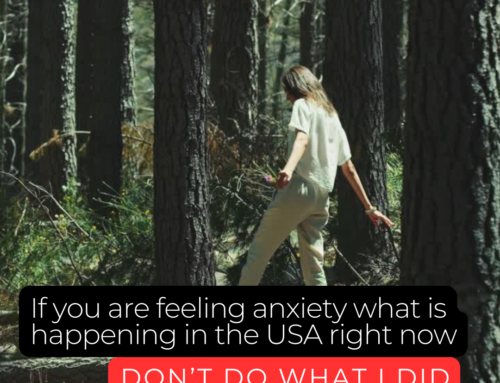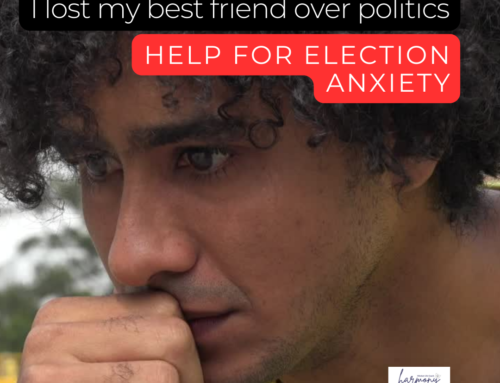Throughout American history, certain presidential elections have generated unprecedented anxiety, division, and social upheaval. From the 1860 election that preceded the Civil War to the contentious races of modern times, these political moments have significantly affected the American psyche, relationships, and social fabric.
“This country will not be a good place for any of us to live in unless we make it a good place for all of us to live in.” – Theodore Roosevelt
“This country will not be a good place for any of us to live in unless we make it a good place for all of us to live in.” – Theodore Roosevelt
Historical Precedents of Electoral Anxiety
The 1860 election, which saw Abraham Lincoln rise to power, created such intense division that it tore the nation apart. Families found themselves on opposite sides of an ideological divide that would ultimately lead to civil war. The 1932 election during the Great Depression saw Americans grappling with extreme economic uncertainty, while the 1968 election occurred against a backdrop of civil rights struggles, anti-war protests, and assassinations.
More recently, the 2000 Bush-Gore election lasted 36 days of uncertainty, creating widespread anxiety as Americans waited for a resolution. The tight race, legal battles, and contested results led to increased reports of stress-related health issues and workplace tensions.
The Physical and Emotional Toll
Dr. Steven Stosny, a renowned relationship expert, coined the term “election stress disorder” during the 2016 election cycle. He observed symptoms including:
- Difficulty concentrating at work
- Sleep disturbances, insomnia
- Increased irritability
- Physical manifestations of stress (headaches, digestive issues)
- Strained relationships with family and friends
- Decreased productivity
- Social withdrawal
The American Psychological Association has documented that election-related stress can manifest in ways similar to other forms of chronic anxiety, potentially leading to long-term health consequences if left unaddressed.
Impact on Professional and Personal Life
Political tension in the workplace can create a lack of collaboration, decreased productivity, increased sick days, hostile work environment claims, lower job satisfaction, and workplace attrition.
The effects can be even more devastating at home. Straining family relationships can result in family members neglecting time spent together. Why would we abandon our once-considered loving marriages and partnerships to fight over what most of us wield little control over? Our children learn tolerance is unacceptable, while conformity and fear become more of the everyday norm.
Expert Recommendations
As a mindset life coach, my work is to support people in their journey from where they are to where they want to go. I am no expert in elections or anxiety, but like you, I can read. :-) There is much literature on anxiety and its role in our lives.
Dr. Brené Brown, renowned researcher and author, emphasizes the importance of maintaining perspective: “When we stop caring about what people think about our political opinions and start caring about being in relationship with them, everything changes.”
Dr. Daniel Goleman, a pioneer in emotional intelligence research, suggests practicing “emotional agility”—navigating political discussions without becoming emotionally hijacked.
His research shows that people with higher emotional intelligence can maintain relationships across political divides while holding to their values.
The first step in developing emotional agility is to notice when you’ve been hooked by your thoughts and feelings. That’s hard to do, but there are certain telltale signs. One is that your thinking becomes rigid and repetitive. ~Susan David and Christina Congleton, Havard Business Review Nov 2013
There is a Hefty Price to Rigid Thinking
We often pay a steep personal price when we become entrenched in our political positions. Consider the cost of absolutely, no question, being 100% right with no room for another opinion. Is it worth this to you?
- Lost friendships
- Fractured family bonds
- Missed opportunities for connection
- Reduced empathy and understanding
- Increased isolation
- Limited personal growth
Deathbed Reflections – and Steven Covey
Do you remember Steven Covey’s book The 7 Habits of Highly Effective People? I found it a remarkable and transforming take on what success requires of me. The point that has stuck with me, I guess close to 40 years now, is this: “Begin with the End in Mind.”
Bronnie Ware, a palliative care nurse who wrote “The Top Five Regrets of the Dying,” never once recorded a patient expressing regret about their political views. Instead, she documented these common regrets:
“I wish I’d had the courage to live a life true to myself, not the life others expected of me.”
“I wish I hadn’t worked so hard and had spent more time with my family.”
“I wish I’d had the courage to express my feelings and stayed in touch with my friends.”
“I wish that I had let myself be happier.”
A hospice chaplain and author, Kerry Egan, shares, “The stories people tell at the end of their lives are rarely about battles won or lost, positions held, or kingdoms built. They are stories about love, hope, and relationships.”
A Matter of Perspective
When you are taking your last breaths, living your last hours, will you care who was President in 2024?
Or will your thoughts turn to the love you gave and received, the lives you touched, the moments of joy you experienced, the wisdom you gained over the years, and the memories you cherish?
How Can We Move Forward?
While civic engagement remains important, we must find ways to participate in democracy without sacrificing our mental health and relationships.
We cannot control what happens around us – but we have 100% control over how we choose to react to our environment. I urge readers (and myself) to consider some of the following tactics for keeping yourself healthy, vibrant, committed to the cause, and nurtured in healthy relationships that last.
1. Set boundaries around political consumption – even if you are a political junkie. Have strict guidelines you adhere to and allow yourself the space to think for yourself. In the end, who cares with the pundits think? (No offense to pundits :-)
2. Practice active listening with those with different views – active listening is KEY to building and nurturing relationships. You will ask more questions and make fewer comments. Your job will be to hear, really HEAR, what the person is saying without your personal bias doing the interpretation.
3. Focus on shared values rather than points of disagreement. There is so much we have in common with most humans. There is always one thing at the very least. Focus on that one thing; you might be surprised by what you learn.
4. Prioritize relationships over being “right” – Your rightness is only right to you anyway. You could easily be wrong.
5. Engage in meaningful activities that bring joy and connection. I have so many of these to safeguard me from myself. Yours, of course, will be personal to you, but I will share one – I live in the company of hummingbirds year round, and they faithfully distract me from the insanity of my obsessions.
6. Remember that political figures come and go, but our actions and relationships create our lasting legacy
My Conviction
In the end, our political views will not define us. Or should I say, I pray to God they don’t!
Instead, it will be the love we share, the kindness we show, and our positive impact on others that truly matters.
Can we show gratitude for the people in our community who improve our lives through their dedication, hard work, support in hard times, and shared laughter on the street corner? We walk this earth with our neighbors despite our geographical proximity.
As we navigate politically charged times, let us not lose sight of what makes life meaningful—our connections, memories, and shared experiences with people who live this life personally connected to ours.
The limitations we believe become the reality we experience. We can change that!




